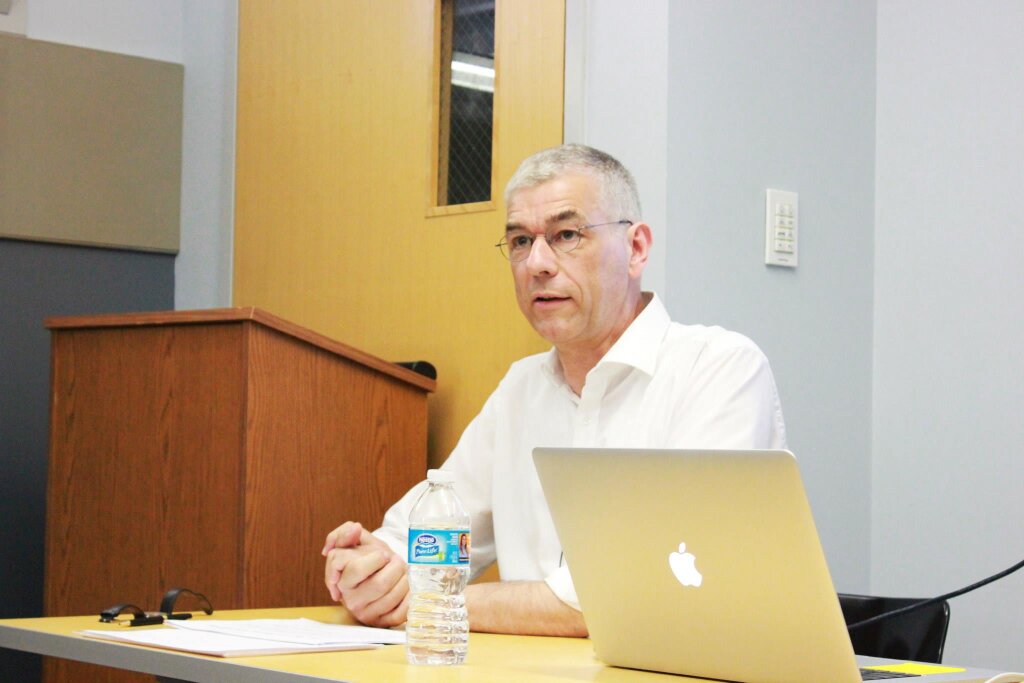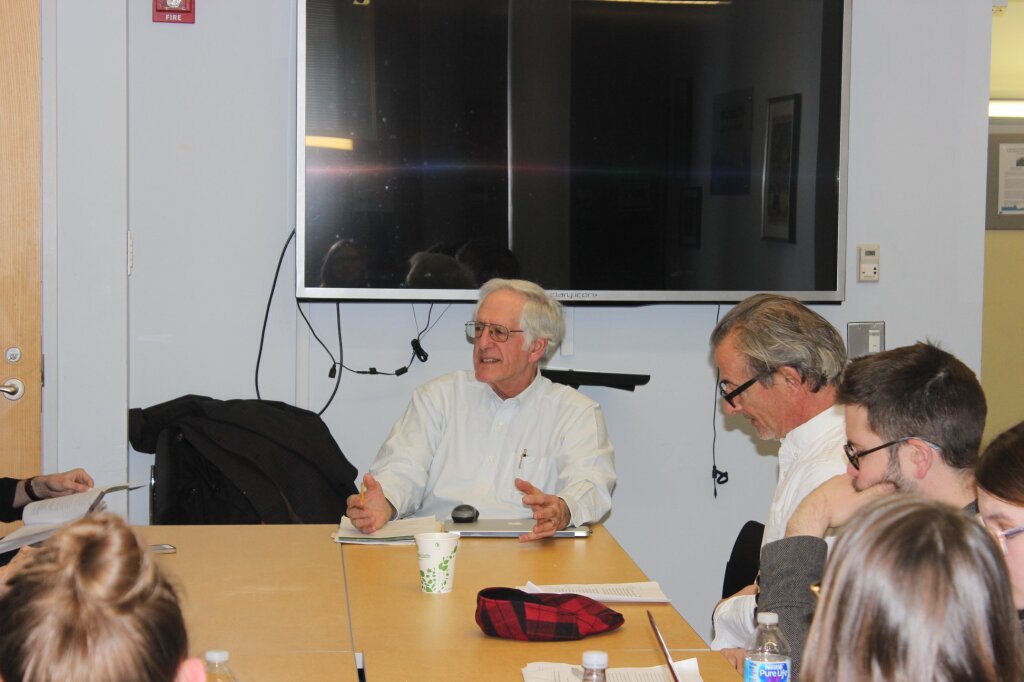On April 29, 2015, the NYU Jordan Center for the Advanced Study of Russia welcomed Thomas Bremer – a current Jordan Center Fellow and a Professor of Ecumenical Theology, Eastern Churches Studies and Peace Studies at Münster University, Germany – to speak about the attitude of the Russian Orthodox Church towards Russian World (Russkii mir), a foundation instituted by Vladimir Putin in 2007. In his brief introduction, Jordan Center Director Yanni Kotsonis expressed his excitement in welcoming Bremer to present on the subject, since not many people work on questions of religion.
The main objective of the foundation, Bremer stated, is to promote Russian culture and heritage abroad. It focuses on offering Russian language classes to non-native speakers in various countries in the West and former-Soviet Union. It also attempts to promote Russian culture among descendants of Russian émigrés abroad. While the involvement of many Russian individuals of significance in this organization underlines its importance, Bremer feels that it is not an effectively working institution.
In 2009 the Russian Orthodox Church joined the Russian World foundation. Bremer believes that often the Church does not have a clear understanding of the Russian World, yet it has developed its own recurring rhetoric about it. For instance, when speaking about the notion of a “Russian World,” the Russian Orthodox Church finds its roots in the Kievan Rus’—a loose principality under the rein of the Rurik dynasty, which is considered a shared cultural ancestor for Russians, Ukrainians, and Belorussians alike. The Church accentuates the united fatherland for all the Slavic people—the Russian empire—independent of a given political ruling system (autocracy or the Soviet regime). The common religious background also lies in the ancient Kiev principality, Bremer added. The idea that all Slavic people were baptized in Kiev together is widespread. Therefore, the Russian Orthodox Church has both a backward and forward orientation in its relation to the “Russian World”. The past cohesion centered around the Kievan Rus’ also guarantees cohesion in the future: the common cultural heritage should enable people to bond together in in their common cultural space.
This belief, however, presents a problem in light of the current crisis in Ukraine. If Ukrainian institutions gain independence, then the Russian Orthodox Church might lose a lot of its parishes on Ukrainian soil and have difficulty referring to the common cultural heritage rooted in the Kievan Rus’. In light of this fear, Bremer wondered if there might be a quiet protest against Russia’s political actions in Ukraine on the part of the Church. For instance, it was well noted that the Patriarch was not present at the celebration of the transfer of the Crimea to Russia.
In Bremer’s opinion, the values that the Russian Orthodox Church discusses in connection with the “Russian World” reveal a strong anti-Western dimension. For instance, the rhetoric involves universal values like love for the motherland, love for another human, justice, and interreligious peace. Yet as Bremer observes, “somehow these universal values are claimed as the values of the “Russian World”. And while the Church claims to avoid making rankings and evaluations of human civilizations, one can perceive an expressed attitude of moral superiority.
This moral superiority is based on the idea that for the Western world, morality is a discourse and a construct with no clear meaning. In the Russian world, morality is singular and concerns the whole community. Likewise, the idea of human rights in the Russian world is based on a group—unlike in the West, where the concept of human rights is expressed on the level of the individual. This, of course, can always lead to a problem, where an individual who stands outside the shared absolute morality could lose their human dignity.
The rhetoric of the Russian Orthodox Church when defining the “Russian World” exceeds national boundaries: this cultural space is open to all those who feel like they belong there (which problematically includes former Soviet Union states). The Church speaks of a possibility of a powerful cohesion between these nations based on the common religious roots. To support this idea, the Church explains the lack of cohesion in the EU due to the lack of religious elements; this secularism is seen as a symptom of a fragmenting modernity that the Russian World shuns.
However, despite the claim of unity, the problem of the canonical territory of the Russian Orthodox Church in relationship to the former Soviet Union states continues to persist. Both the Church and Russian World see the Russian Orthodoxy’s primacy in the Soviet Union, with the exceptions of Georgia and Armenia. However, a problem arises when the Romanian Roman Catholic Church also claims primacy over Moldova.
Bremer concluded his talk by stating that the relationship between the Russian Orthodox Church and Russian World is very ambiguous. While the Church emphasizes a super-national attitude to its values with no connection to politics, tensions persist between its members over political matters. Under conditions of modernity, Bremer added, it is impossible that millions of people would all agree on political issues.
In the Q&A session Bremer answered questions on women’s right, LGBT rights, and migrant rights in relation to the Russian Orthodox Church and Russian World. Bremer stated that both promote many universal values like freedom and justice. They become problematic, however, when the problems become too concrete and particular.



